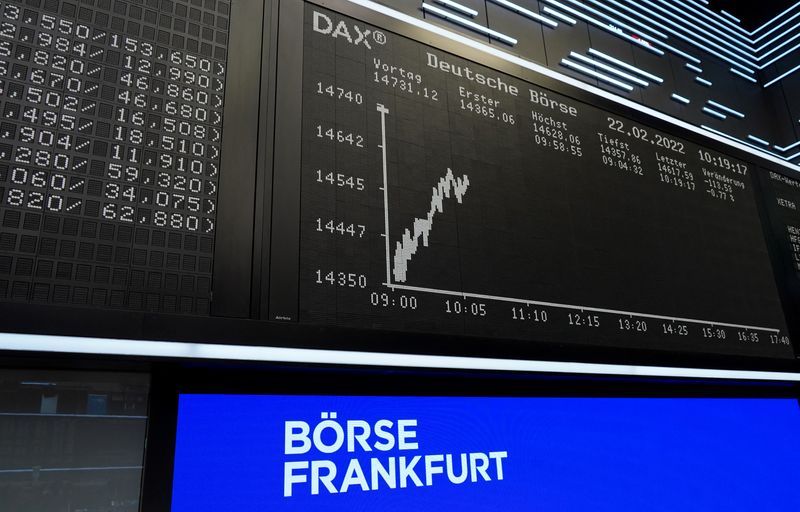By Geoffrey Smith
Investing.com -- European stock markets opened mixed on Thursday ahead of a key day for diplomacy aimed at halting Russia's war in Ukraine.
Western leaders will attempt to raise the pressure on Russia's Vladimir Putin to end the war at three different summits in Brussels: NATO leaders will meet first, then the G7, then the European Union. All three will be attended by U.S. President Joe Biden, who will be trying to convince Germany and others of the need to close the sanctions loopholes that still allow purchases of Russian oil and gas. Progress is likely to be tough, given that German Chancellor Olaf Scholz reiterated his opposition to an immediate stop to Russian energy purchases only on Wednesday.
The summits come a day after Putin said Russia will demand that 'hostile' countries pay for their energy supplies in rubles, rather than dollars or euros, an announcement that drove the ruble to its highest against the dollar since Russian tanks crossed the border a month ago. The move would effectively force the West to transact with the Russian central bank, whose foreign currency reserves have already been frozen by U.S., EU, U.K., and Japanese authorities.
By 4:15 AM ET (0815 GMT), the Euro Stoxx 50 was up 0.1%, while euro was down 0.1% against the dollar at $1.0989. The best performer among major markets was France's CAC 40 with a 0.2% gain, while Sweden's OMX 30 lagged with a drop of 0.4%.
Russian assets, by contrast, were more buoyant. The ruble traded at only 95 to the dollar, a 50% gain from its low point in the immediate aftermath of the sanctions. The ruble-based MOEX index rose 9.6%, amid reports that Russia's sovereign wealth fund was actively buying to support prices. The central bank has banned short-selling and not all Russian equities have resumed trading.
Further west, however, there was evidence of continued disruption to economic activity in what has become an important market for many European companies. French automaker Renault (PA:RENA) issued a profit warning and said it would suspend production of its own brand cars in Russia and would consider walking away from its controlling 68% stake in AvtoVAZ, Russia's largest carmaker. Renault stock, which has already lost 25% in the month since the invasion, fell another 1.8%. By the same token, food and drink giant Nestle said it would stop selling its more discretionary products such as KitKat and Nespresso, but said it will continue to sell products such as baby food. Nestle stock fell 0.2%.
In the U.K., the FTSE 100 was largely flat, while sterling also edged down against the dollar, a day after the government announced cuts to income tax and fuel duty to support consumer purchasing power. Analysts observed that Treasury Chief Rishi Sunak had not gone as far as he might have done, given the unexpected improvement in U.K. public finances in recent months as the pandemic has receded.
Among notable movers, fashion retailer Next (LON:NXT) fell 3.1% after cutting its profit guidance for the current fiscal year by 10%.
